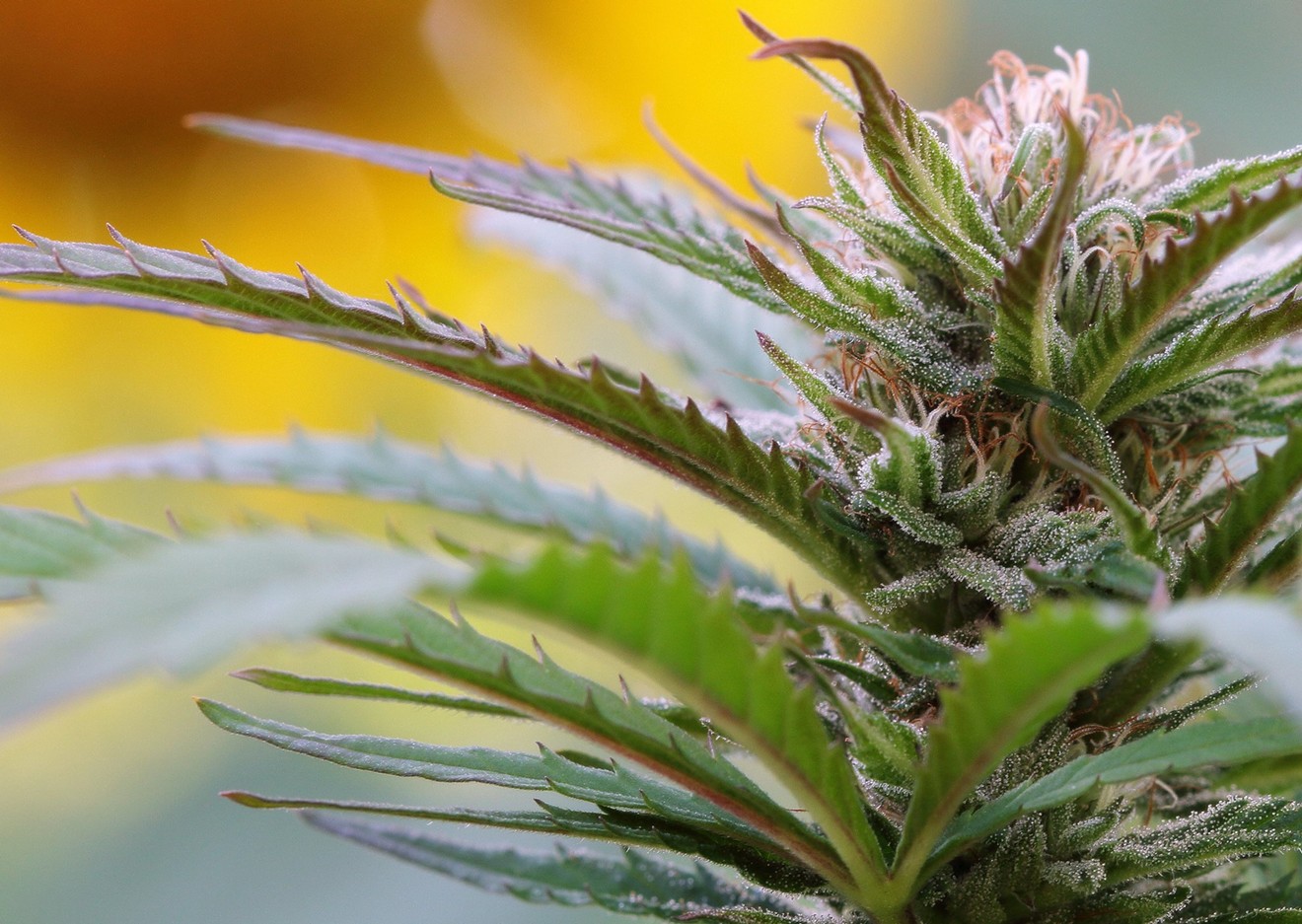The Arizona Department of Health Services put the medical marijuana testing advisory council together in September as a requirement of the Arizona law that will mandate testing starting in November 2020. The group finalized its recommendations on December 23.
Though the council's final report won't be published publicly for at least a few days, according to DHS, which has moderated the council's meetings, a draft version of the report distributed at Monday's meeting includes most of the council's recommendations.
Based on that document, the group argues that products for sale in Arizona should contain less than or equal to 100 colony-forming units of E. coli, no detectable salmonella, and only trace amounts of other microbial growth in order to be sold at dispensaries.
It argues that all products should be tested for four heavy metals — arsenic, cadmium, lead, and mercury — and only products that contain very small amounts should be sold on the market.

Ryan Hurley of Copperstate Farms, left, and Murray Stein of Tucson's Green Halo dispensary, right, were two of seven council members who determined recommendations for how the state should test medical marijuana.
Ali Swenson
And for pesticides, the council recommends that Arizona adopt Oregon's existing list as a guide for which pesticides should be tested for and regulated in the state.
The council's draft report also includes a recommendation that all products be tested for total THC and CBD content, and that product labels at dispensaries must match those levels within 20 percent, or be repackaged to match. Nationwide, reports of false labeling in CBD and THC products have revealed many brands are selling products with different potency levels than advertised.
Up until now, Arizona hasn't regulated any testing of its medical marijuana at all, but the law SB 1494, signed by Governor Doug Ducey in June, requires the state to start testing all products being sold to medical cardholders by November 2020.
This statute comes as other states that have legalized cannabis, including Oregon, Colorado, and California, have created their own testing requirements to promote consumer safety. Pesticide and mold scares in marijuana have raised concerns in patient circles, especially since many patients relying on medical pot have compromised immune systems or deal with other health issues.
Arizona's 12-member testing advisory council — which includes dispensary agents, lab employees, a patient, a caregiver, and others involved in the industry — was charged with advising the governor, the State Legislature, and the state health department on its recommendations by the end of 2019.
It met seven times in Phoenix between September and December and unanimously approved its recommendations in its final meeting Monday.
Next, the state health department will use those recommendations to write up rules for medical marijuana testing in Arizona with a goal of finalizing them by early spring, according to Jessica Rigler, assistant director of the Arizona Department of Health Services. Throughout this process, there will be opportunities for public and stakeholder comments, she said.
In its three months of meetings, the testing advisory council has discussed high-level science, but also industry choke points. Laboratory agents have offered insight into which toxic chemicals appear most often in marijuana products, and dispensary agents have raised concerns that too much testing could kill their industry.
George Griffeth, a member of the council representing the Arizona Cannabis Laboratory Association, said he doesn't think the industry's input diminished the quality of the science or the high level of patient protection the council's recommendations offer.
"I think the science sailed right through," he said. "The council took its job very seriously and recommended high science that will be good news for medical patients in Arizona."
But some outside of Arizona's industry say states determining safe levels of chemical residues in cannabis are operating on faulty science and giving the public a false sense of security.
Since cannabis isn't federally legal yet, there hasn't been enough research to know how pesticides react with cannabis, which is often consumed in different ways than food or other FDA-regulated products, according to Jay Feldman, executive director of the nonprofit Beyond Pesticides.
"What they’re doing is illegal," Feldman said. "They’re allowing production practices in their states that they know yield residue. And then establishing a residue [level] without any scientific knowledge about safety and implying that the residue is meeting a safety standard."
Feldman is right — the federal government hasn't identified any pesticides that it allows expressly to be used on cannabis plants — but that hasn't stopped growers in states nationwide from using such chemicals.
Some also argue that setting limits and implementing some regulation is better than the completely unregulated, Wild West atmosphere that has characterized Arizona's industry up until this point.
The council's report is far from a final answer for Arizona — next, the health department will send it to the governor and legislative leaders for input, and draft rules for the public's review before they are finalized. The public will be able to view the council's report online before 2019 is over, Rigler said.
The testing advisory council also passed a motion recommending to the health department that it meet again in six months and 12 months to review the rules and discuss any problems that arise.











